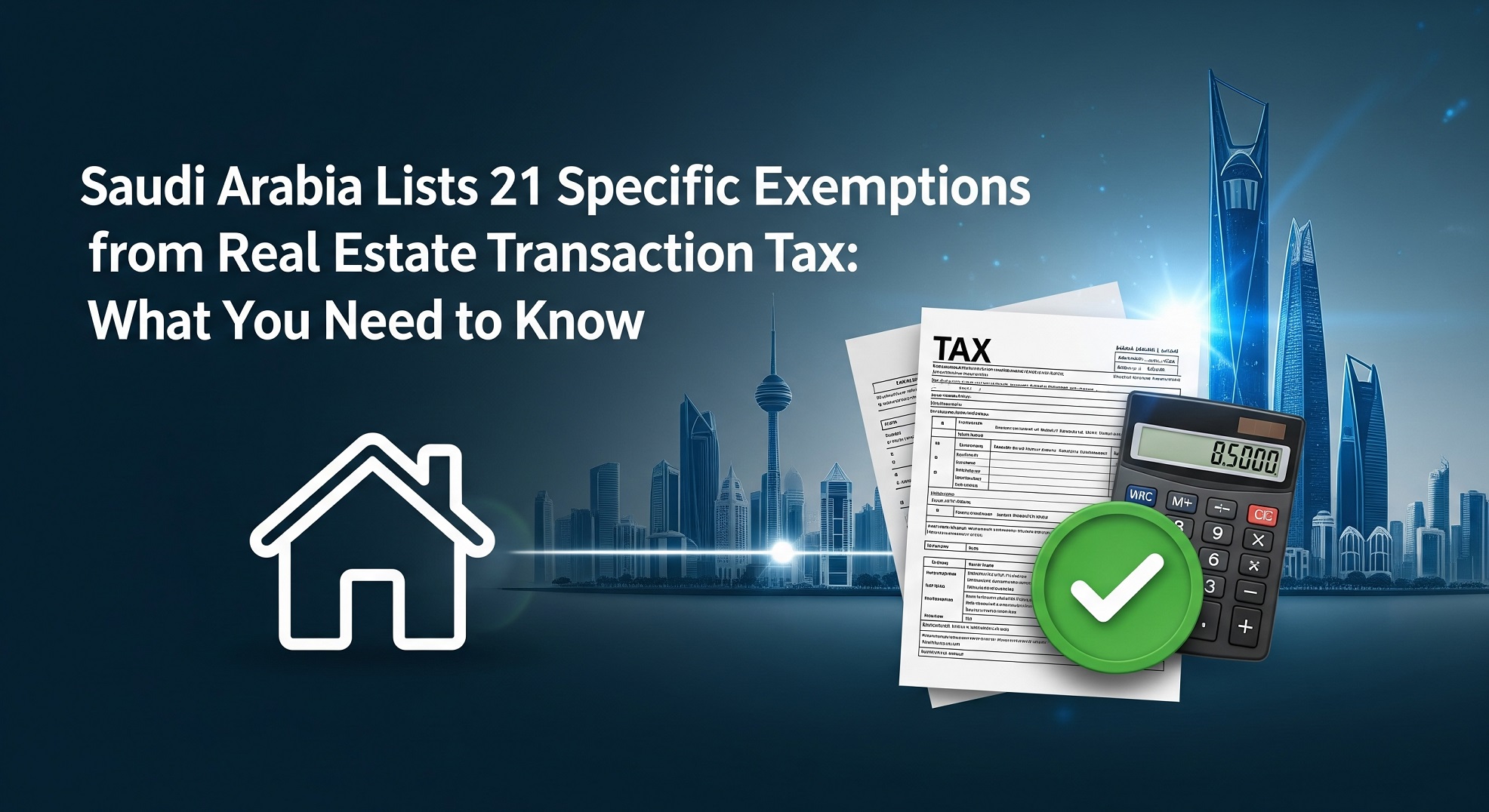In a major breakthrough to streamline property transactions and promote more adherence in the real estate business, Saudi Arabia has come up with revised regulations that detail 21 conditions under which Real Estate Transaction Tax (RETT) can be waived. The decision, which was approved by the Council of Ministers on September 17, 2024, is also a strategic move towards enhancing the transparency, accessibility and efficiency of property transactions in the Kingdom of Saudi Arabia.
The new RETT framework, which has been issued in the official gazette Umm Al Qura is being touted as a major step in the long process of Saudi Arabia establishing an efficient investor friendly real estate environment in line with Vision 2030 objectives.
A Trend of Simplification and Digitalization
The new legislation focuses on digital records and clarity of the process. Any real estate transaction that falls under exempted categories will now have to be registered using the official real estate transaction portal of the Zakat, Tax, and Customs Authority (ZTCA). This is a required online system whereby the records have to be documented, reviewed and passed before the transactions are finalized in the Ministry of Justice.
Notably, the new law provides a one-year grace period to enable people to record real estate transactions that occurred prior to October 1, 2020. This extension is particularly helpful to families and businesses that have historic records of property that may not have been registered officially in the first place, and thus have the chance to correct historical mistakes without incurring immediate penalties.
Who Benefits from the Tax Exemptions?
Although the list of all the 21 cases exempted is provided on the ZTCA portal, the law does not expect people to read the technicalities of it. The real aim is obvious: to make the tax less heavy on real, non-commercial transfer and to encourage more reasonable treatment in special cases.
Some of the most influential exemptions include inheritances of the family and partition of estates. Transfers between close family members up to the third degree i.e. grandparents, great-grandchildren, and even first cousins are now exempted under RETT. This step recognizes the cultural significance of property as a family asset, and it does not penalize families in the context of in-family wealth transfers.
The other significant relief is on transfer of property to charitable associations and waqf (Islamic endowment) arrangements. These exemptions are indicative of the government need to facilitate the social development and religious duty by providing a waiver of redundant financial costs on organizations that make contributions to the well being of the society.
The transactions that also form part of the exemption list in the commercial sphere include corporate mergers, acquisitions and restructuring, under the condition that the respective parties involved are either under the same ownership or otherwise qualify under the terms and conditions provided by the law. These are provisions that are meant to promote business continuity and investment activity without imposing on organizations the cumulative tax burden of internal movements of assets.
Also, lease-to-own contracts and finance leases, which were concluded before October 1, 2020, are not covered by RETT, nor are some real estate transactions that were already value-added taxed before October 1, 2020. Coercive sales, e.g. those conducted through court decisions, are also not subject to taxation so that legal commitments are not hampered by an extra taxation.
The new regulations will also alleviate licensed developers who are involved in the off-plan sales and other such property development projects, leaving more space to innovate in the growing real estate and housing markets in Saudi Arabia.
Severe Consequences of Evasion
To ensure that the tax regime stays clean, the ZTCA has come up with heavy enforcement measures. Any person or organization convicted of giving false information or making any deliberate efforts to avoid the RETT may be fined up to three times the initial amount of tax that was to be paid.
This penalty system is a clear indication that although the government is giving flexibility and relief where necessary, it is determined to deal with fraud and tax evasion. Saudi Arabia is setting up a more transparent and balanced property market by adding incentives to accountability.
The Real Estate Vision of the Kingdom
The new RETT exemptions and simplified procedures are consistent with the greater economic diversification agenda of the Kingdom. It has been noted that real estate is one of the pillars of growth under Vision 2030, and the government is making huge investments to make the sector more dynamic, investor-friendly and digitally integrated.
The reforms will also boost the property sales in the residential and commercial sectors due to fewer bureaucracies and fairer treatment of families, developers, and investors in general. Such initiatives are especially relevant due to the intensification of real estate development in the context of the most significant cities in Saudi Arabia (Riyadh, Jeddah, and NEOM).
Besides, the transformations embrace the vision of the Kingdom to be a global destination of real estate investment, especially with the mega-projects and public-private partnerships that are reshaping the city.
Looking Ahead
The choice of Saudi Arabia to establish and digitalize RETT exemptions is not merely a change in regulation but a cornerstone in establishing trust, fairness, and accountability within the real estate market. As a homeowner, a developer, or a multinational corporation, these changes will bring clarity to an otherwise complex and opaque section of transaction law.
With the ZTCA progressively launching supporting guidance, awareness campaigns, and portal updates, the stakeholders are advised to review their previous transactions, make sure to comply with the new requirements, and apply to be registered in the grace period.
Under this progressive change of policy, Saudi Arabia indicates its preparedness to comply with the international best practice and at the same time, address the specific requirements of its local communities and investors.
